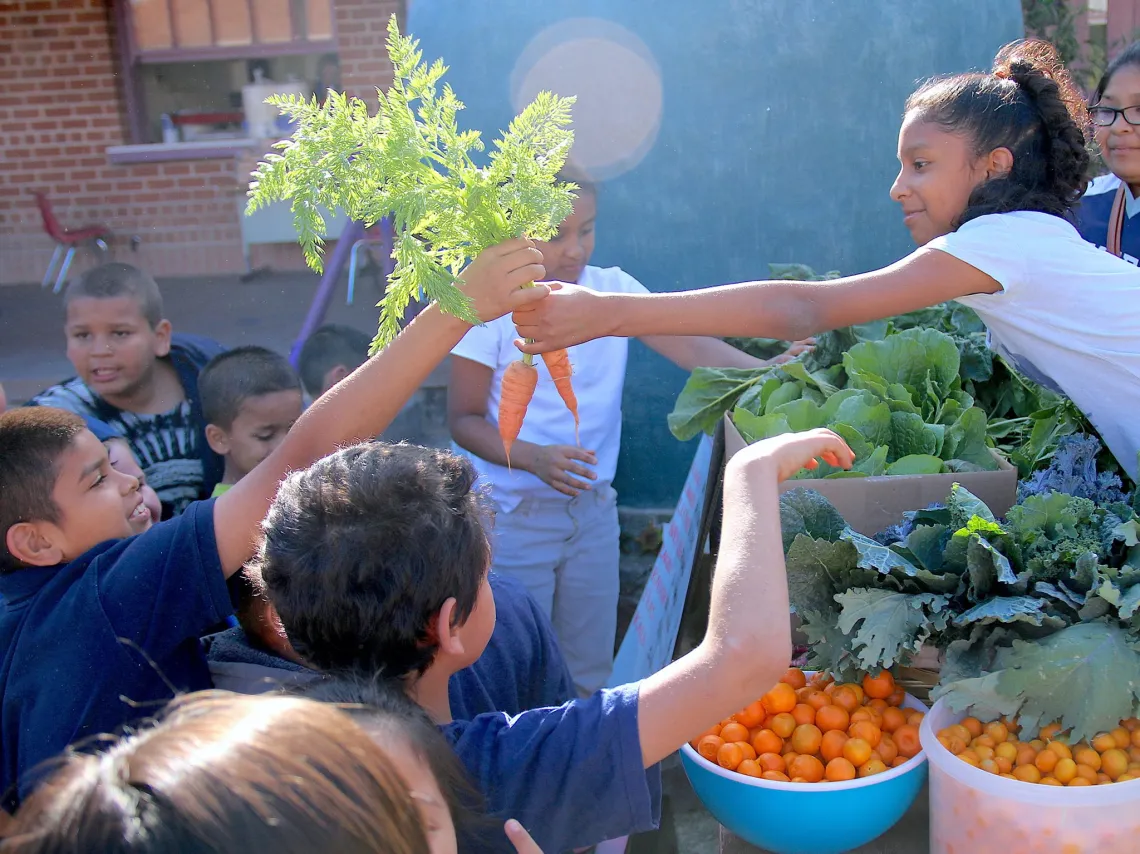University of Arizona School Garden Workshop Announces New Name

Photo courtesy of the School Garden Workshop
In October 2022, the University of Arizona Community and School Garden Program changed its name to the School Garden Workshop. Its mission remains the same.
The School Garden Workshop, which is housed in the School of Geography, Development & Environment in the College of Social and Behavioral Sciences, connects Tucson educators and community organizations with university students eager to participate in the school garden movement occurring throughout the country. University student interns are matched with low-income schools where they support the installation, development and maintenance of a garden program.
School gardens produce many benefits, supporting learning on a variety of subjects and helping meet the socioemotional needs of students.
The School Garden Workshop, which is offered in partnership with Tucson Unified School District, or TUSD, supports approximately 4000 TUSD students and invests 10,000 hours of school garden enrichment a year. The Workshop also provides teacher training, consultations, and community work days.
Moses Thompson, director of the School Garden Workshop, is an expert on using school gardens as a therapeutic tool. In 2021, he testified before the U.S. House Rules Committee on ways schools can fight childhood hunger and help meet the social and emotional needs of students. He is also part of a research team examining the impact of school gardens on the social and emotional health of students, pre- and post-COVID.
In this Q&A, Thompson explains the rationale behind the name change to the School Garden Workshop, the ongoing need for school gardens, and the ways the Workshop is impacting school garden programs across the country.
Q. Why did you decide to change the name of the Community and School Garden Program to the School Garden Workshop?
We wanted to simplify a little and create a name that distinguishes us from the other school garden programs and community garden programs both regionally and nationally. We have a unique program and wanted a unique name that is instantly recognizable. The word workshop has been with our program since the beginning and brings to mind many hands, which is the spirit of everything we do.
Q. In what ways can school gardens benefit students? What are your research finding on how school gardens impacted the social and emotional health of students after COVID?
School gardens have an amazingly broad spectrum of benefits for students. School gardens provide real world context for classroom learning, they connect students with their food system and healthy eating, and they provide a therapeutic space to connect with the natural world. The garden is the perfect place to connect with the way you feel and engage authentically with other people.
Regarding our research, we’re still in the data analysis phase and don’t have our final results. However, through long-term observations we’ve noticed students who have regular access to school gardens seem to have better focus and seem to collaborate more effectively with their classmates.
Q. Some people may know the Workshop for its work supporting school gardens in Tucson. How is the Workshop assisting with school gardens nationally through initiative such as teacher training and curriculum?
We have a unique program model that has garnered national attention, and both national and international interest in our program continues to grow. Programs across the UK have replicated our program and there is interest in Mexico City for collaboration. Twice a year, the U.S. State Department sponsors Indigenous leaders from South and Central America to come to the U.S. and learn about sustainability efforts. Our program is featured in that collaboration, and we are currently hosting a State Department-sponsored fellow from Guatemala to shadow with us for four weeks. Nationally, we’re regularly asked to present for school garden and outdoor education-based trainings.

